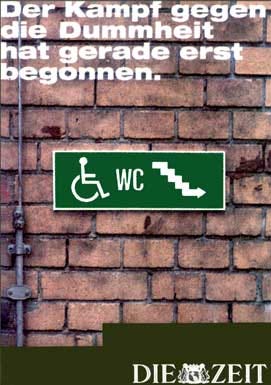The fight against stupidity has only just begun
How to not fool yourself or get fooled by others
The first principle is that you must not fool yourself — and you are the easiest person to fool.
—Richard Feynman—
The title of my article was inspired by the Germany newspaper DIE ZEIT. I translated it to English.
Sometimes, when I read public media’s coverage of China, it feels like I’m reading Don Quixote all over again. Don Quixote was fighting windmills, tilting at imaginary threats, mistaking them for dragons. Similarly, many of these articles on China are battling perceptions that don’t align with reality.
Instead of getting too frustrated, I want to turn this into a learning opportunity. In this article, I’ll walk you through key tools to think more analytically and systematically, tackle seemingly unsolvable questions, and avoid being misled by misinformation.
Let’s cut through the noise and make sense of what’s really going on.
Have the Chinese Stopped Founding New Companies?
The starting point for this article was a recent Financial Times article. But don’t read it! All you need to know is this graphic from the article.
Robert Wu just pointed out that the original version of my article contained the graphic that was updated by the FT after a huge controversy. I have now updated my article and included the original misleading graphic of the FT.
It should take you no more than two seconds to realize that this is, at best, misleading, and most likely complete nonsense - to put it mildly. Let me walk you through the simple mental exercise. The graphic suggests there have only been about 200 new startups in China so far in 2024 (There was some debate about what exactly they meant, maybe only venture capital-funded startups and so on, but this doesn’t really help, and I’m not going down that rabbit hole).
China has a population of roughly 1.4 billion. This would imply that only one in every 7 million people is founding a startup. We don’t need to dig deeper to see how ridiculous that is, but let’s continue. For a city like Shanghai, with around 25 million residents, this would mean only 4 new startups this year. Personally, I know more new startup founders in Shanghai this year than that number, and I’m not even involved in the startup ecosystem. You don’t need to be in Shanghai to call this nonsense. Yet, somehow, it’s good enough for the Financial Times.
I won’t bother estimating the real number of new startups further, as Robert Wu has already done an excellent job unpacking it. Robert estimates the actual number to be at least 1,000,000, which is 5,000 times more than what the Financial Times article claims. You can read his article for more details. In any case, it’s so absurd that it’s not worth my time to delve into it further.
How Not to Get Fooled I: Debunking Nonsensical Statements
As investors, one of our most crucial abilities is to avoid being fooled. We must remain grounded, not getting swept up by lofty projections from management or influenced by the rosy pictures others try to paint. Staying clear-headed and focused on the facts is essential to making sound decisions and protecting ourselves from misleading perceptions.
In this section, I will provide two simple examples of how to debunk nonsensical statements or dispel misleading impressions without needing to find precise numbers. Later on, I’ll show how one could estimate or obtain approximate figures, but that’s not the focus of this first part.
You Can’t See Stars in China?
My aunt told me a story about a Chinese exchange student from Beijing she hosted. The student was impressed by the night sky in Germany. The student claimed that in China, one can never see stars because of the high air pollution. Since she heard that, my aunt has been absolutely convinced that this statement is true, without a hint of doubt or any questioning.
Of course, like all rumors, this one sounds very plausible, doesn’t it? High air pollution in China, making the night sky invisible. It seems believable, but don’t stop there. Always question.
Okay, let’s quickly debunk this kind of statement. A simple online search will show air quality reports from China, this one is for Beijing 2015-2017.
What you’ll find is that nearly every month, even during the worst times in terms of air pollution, Beijing has days where the Air Quality Index (AQI) is green or below 50, which in turn corresponds to a PM 2.5 reading of below 10. This indicates air quality levels equivalent to those in cities across Europe, the United States, or other regions. I could go into further detail about why or when these green days typically occur in Beijing, but that’s additional information that is totally irrelevant to this particular point.
So, let’s take this a step further. It couldn’t be air pollution on those clear, green AQI days. But let’s say there’s another reason why this student may have never seen stars. Another possibility might be cloudy skies. But if you do another quick online search, you’ll find that Beijing is very dry in the winter, with almost no clouds from November to March. So, that explanation is also ruled out. The only plausible reason left is light pollution. Yet even with that, one can see stars in other major cities around the world. I’ve personally seen plenty of stars in Beijing (although light pollution really limits it), even back in 2015. As for my aunt? She still believes you can never see stars in Beijing.
Luckin Coffee – Why I Did Not Invest
I have to start with a confession: I hate Starbucks coffee. I don’t see the point in spending 40 RMB for a cup of what feels like overpriced black water. So, when Luckin Coffee appeared on the scene in China, I was genuinely excited. It seemed like a great idea—a local Chinese brand offering coffee for essentially half the price of Starbucks, albeit with the same bad taste - but hey maybe that’s supposed to be that way. I never actually paid for a cup of coffee at Luckin, but I did use some of their free vouchers - meh.
I was thrilled to see Luckin Coffee stores popping up everywhere, and I couldn’t help but be impressed by their rapid growth. That’s when I started getting interested and wondered if I should invest. However, I was concerned that their growth seemed too rapid to be sustainable. So, I decided to spend a day walking around Beijing, visiting 50+ Luckin stores to see things for myself - good old Peter Lynch style. What I found was—there were hardly any customers in the stores, and I didn’t see Meituan drivers lining up for deliveries like you would for popular brands like Heytea these days in China. I didn’t even bother estimating any numbers because the obvious lack of customers quickly put an end to my plans of investing in the company. The empty stores spoke louder than any growth projections or financial reports could.
Of course, one could conduct much more sophisticated analyses in both cases. You could apply some physics to develop more advanced arguments on why you should be able to see the stars or better estimate the number of customers for Luckin. However, once you realize things don’t add up, there’s no need to waste time. The rest is history.
How Not to Get Fooled II: Using Fermi Questions to estimate numbers
The ability to question things and think critically is invaluable, especially when analyzing companies. Take, for example, the common claims about total addressable markets and forward projections. Most of the time, with just a little effort, you can see that things don’t add up. It’s a matter of training yourself to look and think—something you can get better at by asking Fermi questions.
Fermi questions, named after the renowned physicist Enrico Fermi, are a method of tackling seemingly impossible-to-answer questions by breaking them down into smaller, more manageable parts. The idea is to estimate quantities using logical reasoning and basic knowledge, without needing precise data, to arrive at a fairly accurate numeric answer. Fermi was known for his ability to make rapid and accurate estimations, such as when he famously estimated the strength of the first atomic bomb blast by observing how far a piece of paper moved in the explosion’s shockwave.
To illustrate, let’s work through a classic Fermi question: “How many piano tuners are there in a large city like New York?” At first glance, this seems daunting, but by breaking it down, we can estimate a reasonable answer. First, assume the population of New York is about 8 million. Next, consider how many households there are, perhaps around 3 million. If we estimate that 1 in 20 households has a piano, that gives us 150,000 pianos. Now, assume that each piano needs tuning once per year, and a piano tuner can handle about 2-3 pianos per day for around 250 working days a year. That would mean one tuner can service roughly 600 pianos annually. Dividing the total number of pianos (150,000) by the number each tuner can service (600), we get around 250 piano tuners in New York. While the number might not be exact, this method shows how a seemingly impossible question can be tackled with reasonable, well-grounded estimates.
In his book Superforecasting, Philip Tetlock discovered that one of the favorite tools of superforecasters—individuals who predict future events far more accurately than the average person, and even intelligence agencies with all their classified data and information—was asking Fermi questions.
If you want to see a investing related example of a Fermi Question: In my article on Jiumaojiu $9922.HK, the Chinese restaurant chain operator, I used Fermi questions to estimate the maximum number of stores they could potentially open. Through this analysis, I concluded that, alongside other factors, the company’s growth prospects appear to be quite limited. You can find it in the risk section of the article.
Jiumaojiu $9922.HK Chinese hot pot chain
This article continues my series on Chinese hot pot chains, although Jiu Mao Jiu is not a pure hot pot chain itself. You can find the first part here. Please note that the previous article had a more food-focused blog style, which received some criticism. In this article, I will concentrate on the business aspects, discussing food only when it is releva…
By practicing Fermi questions, you not only improve your mental agility but also develop a radar for spotting nonsense. Whether it’s in media reports, financial forecasts, or everyday situations, the ability to think for yourself is one of the most valuable skills you can have. This is especially true for China-related issues, particularly when you receive news only second-hand and can’t experience it firsthand.
Let’s end with a little exercise for you guys tonight. Try to use Fermi Questions to estimate the number of new founded startups in China in the first 8 months of 2024 - if the number you get is below 200 send your resume to the Finacial Times.









The screenshot you have is of the graph that they have corrected, after ~5 days of intense controversy (there is no note for the change of course). The current one, is actually okay from a factual perspective. Yet, I also kept the original graph. You can find it here, maybe that will be more fitting for your thesis. https://www.china-translated.com/p/has-china-stopped-producing-new-companies
Thank you for this article, I enjoyed it very much. I’m going to start to use these Fermi questions—sounds like a really good concept. Luckily for me, I don’t have to submit my CV to the Financial Times!